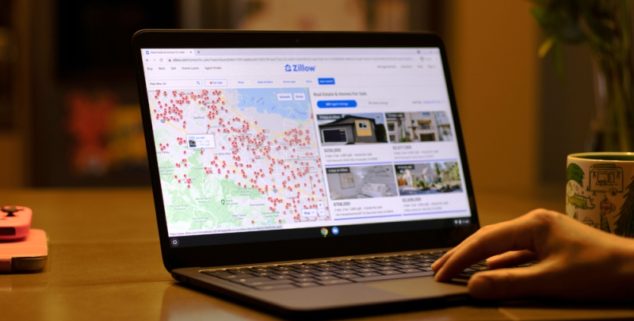Opinion
California pondering limits on low-income broadband subsidies
 A person uses a laptop computer to go online and search for housing. (Photo: Tada Images, via Shutterstock)
A person uses a laptop computer to go online and search for housing. (Photo: Tada Images, via Shutterstock)Expanding broadband access is key to advancing equity in our increasingly digital society.
So why are California regulators taking steps to restrict the use of federal and state broadband subsidies to support communities that need them most, effectively widening the digital divide?
The California Public Utilities Commission (CPUC) will vote as early as Aug. 25 to approve a proposed decision that would limit wireless service providers’ ability to combine federal dollars from the Affordable Connectivity Program with California LifeLine subsidies, jeopardizing broadband affordability and disproportionately hurting lower-income Californians.
CPUC staff rationalized that low-income consumers do not require more data and shouldn’t have complaints about being relegated to second-class service.
The proposed decision would cap data usage for lower-income customers at 6 gigabytes per month. That’s a fraction of the 30-plus gigabytes consumed each month by the average American smartphone user, according to market research firm The NPD Group.
In our bandwidth-hungry world, video streaming is often necessary for e-learning, remote work and telehealth appointments. One hour of standard-definition video streaming – a single class, job interview or telehealth screening – eats up a full gigabyte of data. High-definition video streaming consumes three gigabytes per hour.
CPUC staff rationalized that low-income consumers do not require more data and shouldn’t have complaints about being relegated to second-class service. Rather reinforcing harmful stereotypes that underserved community members should be satisfied with less and are incapable of selecting the broadband plan that best meets their needs, regulators must recognize the growing need for connectivity and reassess minimum service standards.
Millions of Californians depend on the options for affordable connectivity that are now under threat to access remote work, e-learning, telehealth and vital government, social and community services.
The proposed decision, if adopted, would quash opportunities for technological access and upward mobility for the neediest among us – in a state known for innovation that prides itself on being a beacon of opportunity for all.
The proposed decision also runs counter to the Biden Administration’s “all-of-government” approach to cutting internet costs for more American families. Federal authorities have urged California and other states to accelerate enrollment in the Affordable Connectivity Program.
Approximately one million households have been enrolled since GetInternet.gov launched in May, according to the White House, but more than 48 million U.S. households qualify for the program. We must maximize all available federal and state funds to boost enrollment numbers and serve more qualifying families.
Federal, state and local legislators have called for an all-of-the-above approach to narrowing the digital divide. So have diverse stakeholders representing nonprofit organizations, educational institutions, wireless service providers and regional government entities who attended a broadband workshop convened by BizFed Institute, a 501(c)3 that strives to break down barriers with information and has played a leading role in regional efforts to achieve digital equity.
Bundling is in line with this recommended approach, offering the most robust and affordable access to wireless connectivity without sacrificing wired line broadband service. All Californians –– not just the most affluent –– deserve to have affordable access to high-quality basic communications in the form of both wired line and wireless options.
The CPUC should maximize available public subsidies to boost broadband affordability without limiting wireless service providers’ ability to bundle subsidies. This is the most sensible path forward, toward a brighter, more connected future for all Californians who seek to learn, earn and contribute to their communities.
Let’s keep California a global leader in technology and social equity.
—
Editor’s Note: Kevin Harbour is president of BizFed Institute, a 501(c)3 that convenes thought leaders, innovators, elected representatives and diverse business groups to strengthen communities throughout California.
Want to see more stories like this? Sign up for The Roundup, the free daily newsletter about California politics from the editors of Capitol Weekly. Stay up to date on the news you need to know.
Sign up below, then look for a confirmation email in your inbox.

Leave a Reply